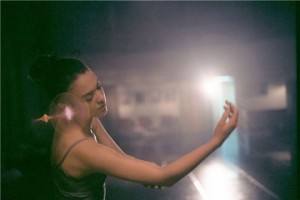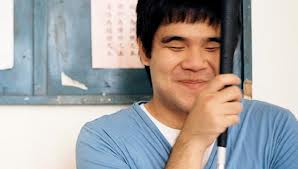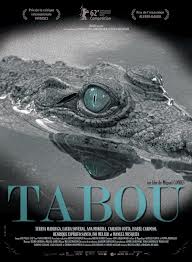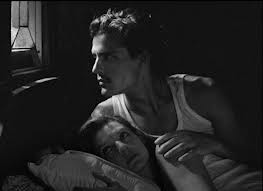Will be soon distributed in France
Age : from 7 year's old
109 mn
A Taïwan, Hong Kong and China film
Genres : Drama
Director : Jung-Chi CHANG
Cinematographer : Dylan Doyle
Distribution : Sandrine Pinna, Yu-Siang HUANG
Touch of the light, the first feature film by Jung-Chi Chang, presented during the 49th Golden Horse Film Festival in Taipei (Taïwan) received the International Critic Price by the Fipresci jury and also the New director award at
the Golden Horse awards ceremony, which is comparable to the Oscars and takes place at the end of the festival.
This film is based on the true story of blind pianist Yu-Siang Huang. He plays the role of Shiang, who was also born blind. The other leading part, Jie, is played by Sandrine Pinna, a very pretty French Taïwanese actress.
Up until the end of high school, Shiang lived at his parent’s with his little sister. The story begins as he leaves home with his mother for Taipei University to learn music and the piano in particular, his passion. His little sister waves to tell him goodbye. She’s sad to be separated from him. One can imagine how kind he was with her. He looks angelic, good-hearted and discreet. Even if he’s smiling continuously, his graceful smile straddles the line between resignation and deep despair. When he was young, he used to compete in musical competitions and win. But once he heard he won because he was blind, he stopped winning. This horrible memory lingers in the back in his head and makes him lose his momentum each time he desires to play music.
Shiang places a huge importance to women’s voice. And it’s precisely Jie’s voice that draws his attention for the first time when he hears it on campus. One element of her job consists of delivering drinks and food to the students on campus.
The second part of his life starts when he and his mother step into his bedroom at university. His mom is worried and suffers because she knows he has to become completely autonomous in this one instance, and she knows he isn’t and will never be. We get the sense that she feels responsible for her son’s disease. But she cannot express her profound misery. She cannot hug him. Her voice-over states that when Shiang was 3 years old, she learned he was blind. Then he smiled at her! As if he had already the same extraordinary
personality.
His only refuge is his piano. But his talent puts him in solitary confinement.
Parallel to Shiang’s story runs Jie’s. She’s got a job in a fast food restaurant. She looks serious and realistic.
Her father drinks and her mother spends her time spending the money she doesn’t have! Jie keeps on giving her money that she uses to buy cosmetics in triplicate while she can’t make ends meet!
Jie and Shiang are going to meet each other. Jie had a dream which never could fulfilled: becoming a ballet dancer. But as her family couldn’t make ends meet, she couldn’t follow the Academic program in dance. Her meeting with piano fanatic Shiang will make her more self-confident and open up new horizons. From his end, Shiang finds more and more energy to take piano lessons, forming a band and having fun with the musicians, and otherwise being independent without asking for help from other students.
Most of the screen play is solid. The only regret is that some flash backs, at the end of the film, that have already been seen in the middle, were too long and weigh down the story a bit.
The acting is fully convincing. Yu-Siang Huang never overacts. Sandrine Pinna is very attractive and her style combined with her fragility and innocence should make her become a key player. She’s already been honored three times for best actress.
The French cinematographer Dylan Dole has chosen to not include many dialogues but rather a lot of lighting effects to express not only emotion but also a blind person’s way of feeling. The lights radiate around Shiang as if all the lights he was deprived of inside were given back tenfold to his next of kin.
 Both piano recitals and dance scenes – in particular the ones where Jie has dance lessons with the leading Taiwanese female dancer Hsu Fang-yi – are transcended by the shooting process that gives aesthetic pictures, full of poetry and sensuality. Music played by Shiang comes with Jie’s dancing sequences to show how their lives and behavioral psychologies are interlinked and how one draws his inspiration from the other one. The audience is put into a wonderful artistic whirlwind. It has the sense that it detects the world with the same emotions as a blind person may.
Both piano recitals and dance scenes – in particular the ones where Jie has dance lessons with the leading Taiwanese female dancer Hsu Fang-yi – are transcended by the shooting process that gives aesthetic pictures, full of poetry and sensuality. Music played by Shiang comes with Jie’s dancing sequences to show how their lives and behavioral psychologies are interlinked and how one draws his inspiration from the other one. The audience is put into a wonderful artistic whirlwind. It has the sense that it detects the world with the same emotions as a blind person may.
What a performance to play his own life without locking his audience into a strange world which might only inspire pity and compassion! We can imagine the director has been inspired by Yu-Siang Huang’s brilliant mind and by his life lesson. Indeed, he offers a first feature film full of delicacy, artistically ambitious and accomplished.
When Yu-Siang Huang was given his Fipresci prize he told the audience : “I’m very happy to win this prize but also sad because I’ll never see how I can play a role…”






